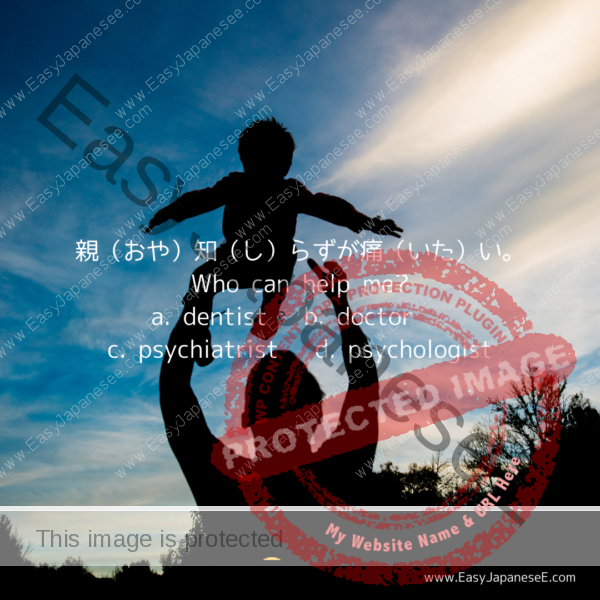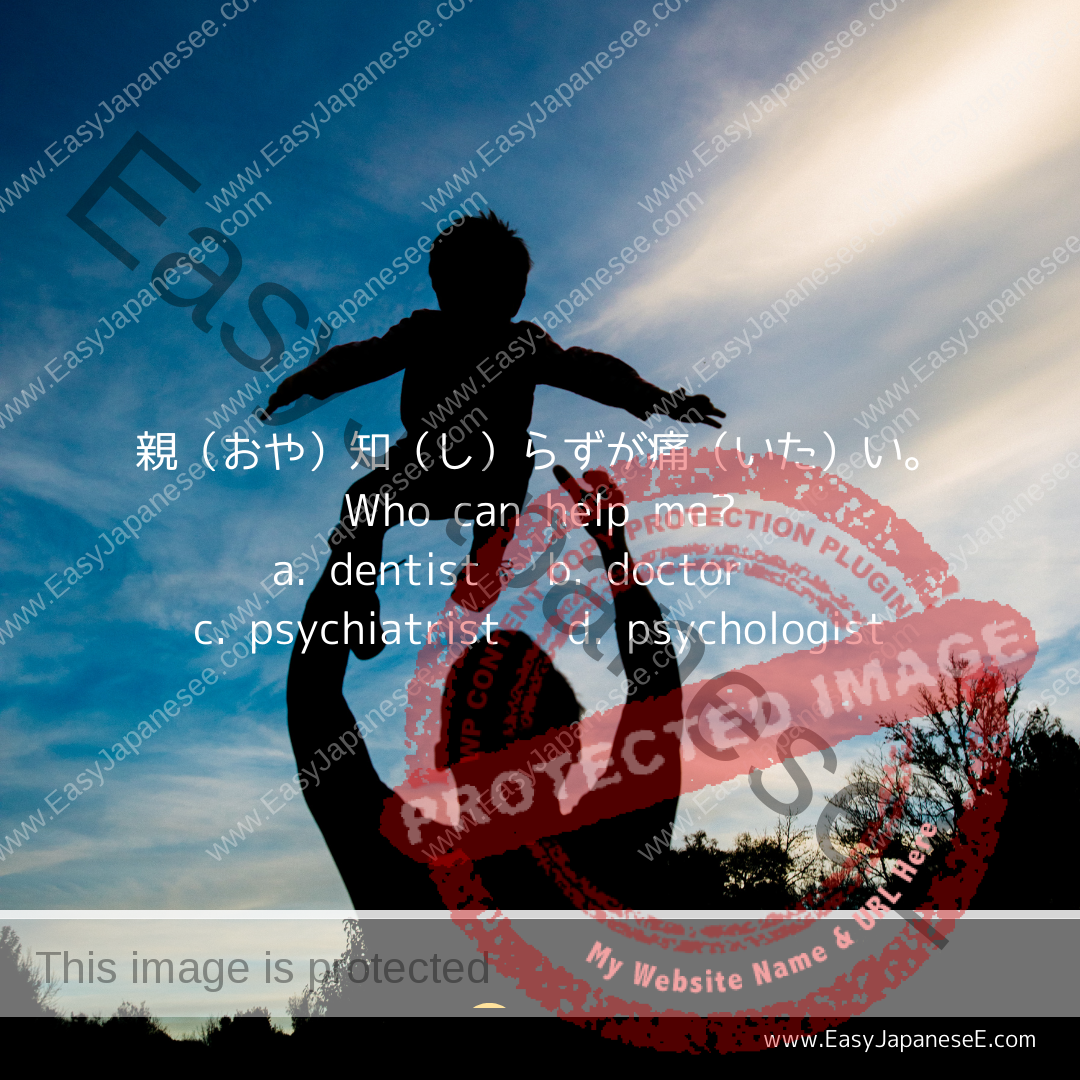
Yesterday I talked about ~ず(に)which means “without doing ~。” 親= a parent, 知ら= to know, ず = NOT, so the literal meaning of 親知らず is “not knowing one’s parents.”
The actual meaning of 親知らず is a wisdom tooth. The reason why it’s called 親知らず is that by the time children get their wisdom teeth, their parents are likely to be dead already. Now that most people live nearly 90 years, this is not the case any more but when the saying was established, probably lots of people died quite young.
There is another theory for the naming, that is, unlike most adult teeth (大人の歯/永久歯*), wisdom teeth do not replace any baby tooth (乳歯), so they are called 親知らず (= a tooth without its own predecessor) but the first 2 molars (奥歯/臼歯*) of each side do not have their predecessors, either, so this theory is a bit weaker than the first one, I think.
Some more dental terms:
前歯: a front tooth
八重歯: an oblique tooth, a double tooth (In Japan 八重歯 is often considered a charm.)
虫歯: a decayed tooth
入れ歯/義歯*: false teeth, denture
歯医者/歯科医 *: a dentist
歯を磨く: to brush one’s teeth
歯を抜く: to pull a tooth out
*Wherever 2 terms are given for the same thing, the first one is more often used in conversations and the latter is more often used in a written passage.
So, when 親知らずが痛い(= a wisdom tooth hurts), you’d better go to a dentist.

